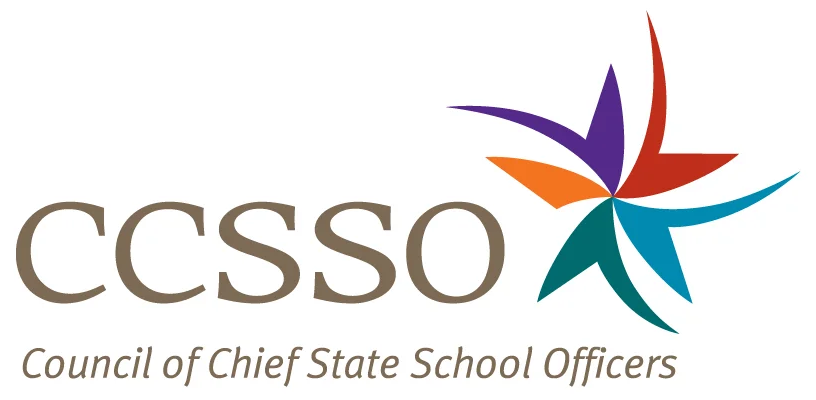CCSSO Announces New Members Join its Board of Directors
Washington, DC (April 8, 2024) -- The Council of Chief State School Officers (CCSSO) today announced North Dakota Superintendent Kirsten Baesler will assume the role of president of its Board of Directors, and Nevada Superintendent Jhone Ebert and New Hampshire Commissioner Frank Edelblut will join as new members of the board.
Georgia Superintendent Richard Woods, a current board member, will assume the role of president pro tempore. These changes take effect June 1, when current Board President and Missouri Commissioner Margie Vandeven will step down from her position with the board. Board member and Washington, D.C., State Superintendent Christina Grant announced she will leave office at the end of the school year.
"I am grateful to Commissioner Vandeven and Superintendent Grant for their leadership and service to CCSSO and fellow state leaders,” said CCSSO Chief Executive Officer Carissa Moffat Miller. “I welcome Superintendent Ebert and Commissioner Edelblut to CCSSO’s Board of Directors and appreciate their willingness to support the organization and share their wealth of experience and knowledge with their colleagues. I look forward to working with them to support our members and continue our efforts to ensure every student graduates ready for college, careers and life.”
Baesler and Woods currently serve on CCSSO’s Board of Directors and will now assume new board officer roles as a result of the transitions. Edelblut will fill the board seat previously held by Woods, and Ebert will join the board to fill the board seat previously held by Grant.
“I am honored to join this distinguished group of leaders that works diligently to uplift our nation’s public schools,” Ebert said. “CCSSO plays a crucial role in representing state education agencies and advocating for effective policies that improve student outcomes. I look forward to elevating the incredible work that is happening here in Nevada and across the nation.”
“As New Hampshire strives to enhance and strengthen its own educational pathways, I am pleased to be able to join the CCSSO leadership team to continue this important service at a broader level,” Edelblut said. “This position provides the unique platform to assist and collaborate with other school chiefs throughout the country to ensure that students nationwide can become successful individuals with unlimited opportunities and bright futures. I’m immensely grateful for the trust that CCSSO placed in me to support this impactful work, and I’m honored to be recognized by my peers nationally in an effort to make salient contributions, alongside CCSSO, to champion for America’s students.”
CCSSO’s Board of Directors manages the overall business affairs of the Council and is the governing body of the organization. The Board is composed of the president, the president-elect, the past president and six directors elected by members of the CCSSO membership. The president pro tempore serves in place of the past president.
Effective June 1, 2024, CCSSO’s 2023-2024 Board of Directors is:
· President: Kirsten Baesler, North Dakota
· President-Elect: Eric Mackey, Alabama
· President Pro Tempore: Richard Woods, Georgia
· Board Member: Jhone Ebert, Nevada
· Board Member: Frank Edelblut, New Hampshire
· Board Member: Keith Hayashi, Hawaiʻi
· Board Member: Angélica Infante-Green, Rhode Island
· Board Member: Chris Reykdal, Washington
· Board Member: Jill Underly, Wisconsin
###
The Council of Chief State School Officers (CCSSO) is a nonpartisan, nationwide, nonprofit organization of public officials who head departments of elementary and secondary education in the states, the District of Columbia, the Department of Defense Education Activity, Bureau of Indian Education, and five U.S. extra-state jurisdictions. CCSSO provides leadership, advocacy, and technical assistance on major educational issues. The Council seeks member consensus on major educational issues and expresses their views to civic and professional organizations, federal agencies, Congress, and the public.
